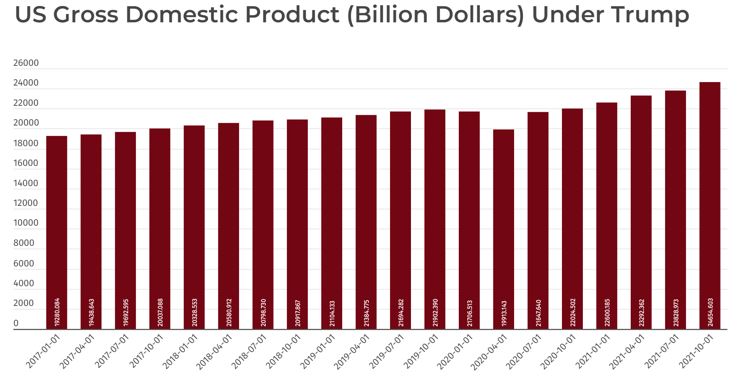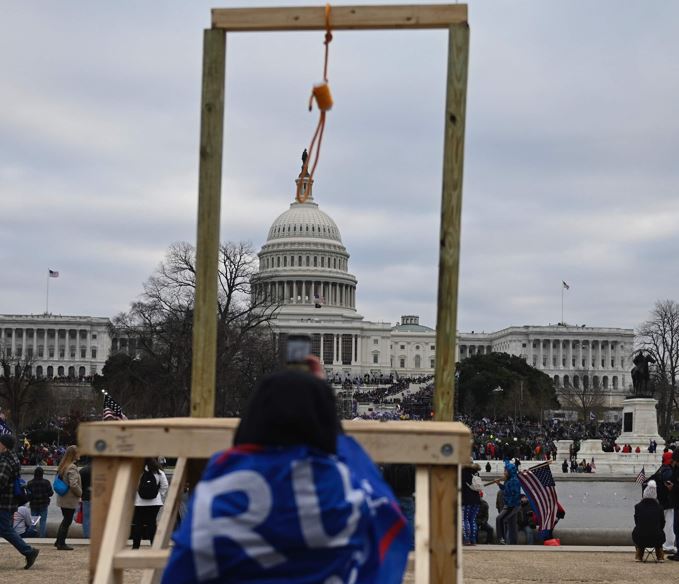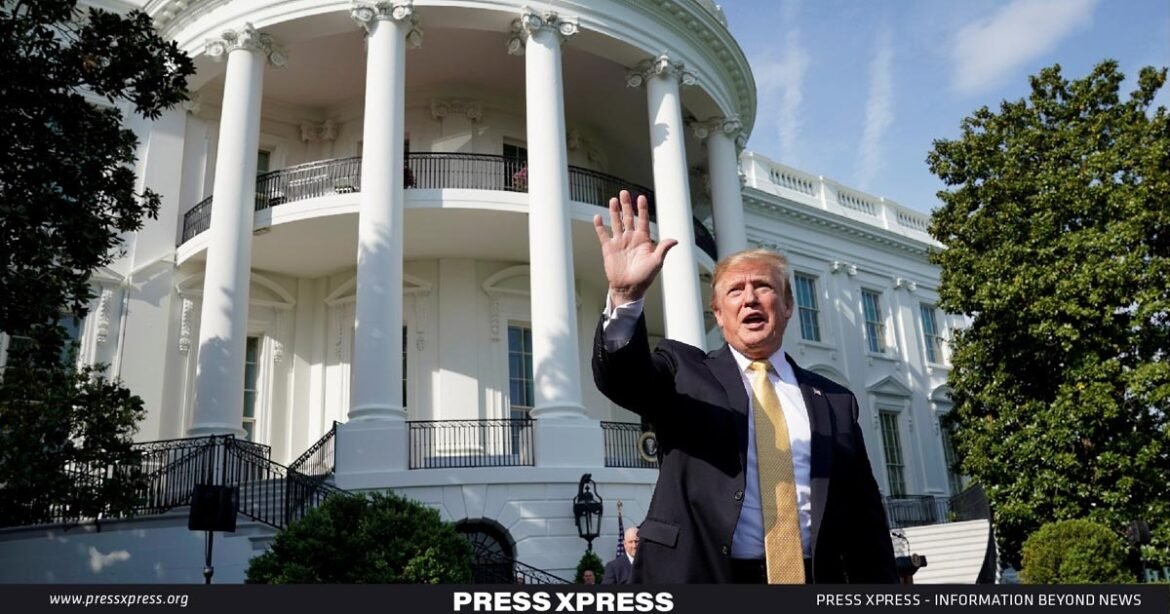Donald Trump, the former president of the United States, is widely expected to announce his candidacy for the 2024 presidential election. His potential return to the White House has sparked a lot of speculation and debate about the implications for the US and the world. In this article, we will analyze some of the key issues that could be affected by Trump’s second term, based on his previous policies and statements.
You Can Also Read: Decoding Biden’s Struggles and Trump’s Resurgence
Effect on the US and Global Economy
Trump’s economic agenda in his first term was characterized by tax cuts, deregulation, trade wars, and fiscal stimulus. His supporters claim that these policies boosted economic growth, job creation, and stock market performance. His critics argue that they increased inequality, debt, and environmental damage.

If Trump wins the 2024 election, he is likely to continue his economic policies, with some possible changes. For instance, he might pursue more infrastructure spending, as he promised in his 2020 campaign. He might also impose more tariffs on imported goods, as he suggested in a recent interview. He might also try to dismantle the “deep state” by firing thousands of federal employees and cracking down on government leakers.
The impact of Trump’s economic policies on the US and the global economy would depend on several factors, such as the state of oil prices, the response of Congress, the reaction of the markets, and the countermeasures of other countries.
Possible scenarios are:
- Positive scenario: Trump’s policies stimulate domestic demand, investment, and innovation while avoiding major trade conflicts and inflationary pressures. The US economy resurges and leads the global recovery. Other countries benefit from increased trade and investment opportunities with the US.
- Negative scenario: Trump’s policies trigger trade wars, inflation, and debt crises while undermining consumer confidence, social welfare, and environmental protection. The US economy suffers from stagflation and instability, dragging down the global economy. Other countries face increased trade barriers, geopolitical tensions, and security threats from the US.
Will America become more divided?
Trump’s presidency was marked by deep polarization and division in American society, along political, ideological, racial, and cultural lines. His supporters view him as a champion of their values and interests, while his opponents see him as a threat to democracy and human rights. His rhetoric and actions often inflamed social conflicts and violence, such as the Capitol riot on January 6, 2021.

If Trump returns to the White House, he is likely to exacerbate the divisions and animosity in America, especially if he wins by a narrow margin or contests the election results. He might also face more resistance and opposition from the media, the judiciary, the intelligence community, and the civil society.
Possible scenarios are:
- Positive scenario: Trump moderates his tone and style, and reaches out to his critics and adversaries. He acknowledges the legitimacy and diversity of the American people and respects the rule of law and the constitutional checks and balances. He fosters a more civil and constructive dialogue and cooperation across the political spectrum and addresses the root causes of social grievances and inequalities.
- Negative scenario: Trump intensifies his attacks and insults on his enemies and detractors, and rallies his base with populist and nationalist appeals. He challenges the credibility and authority of the American institutions. He fuels a more hostile and violent confrontation and polarization among the American people and provokes a constitutional crisis or a civil war.
Changes in Foreign Policy Due to Trump’s Return
Trump’s foreign policy in his first term was based on his “America First” doctrine, which prioritized the US national interests and sovereignty over multilateral commitments and cooperation. He withdrew the US from several international agreements and organizations, such as the Paris climate accord, the Iran nuclear deal, and the World Health Organization. He also adopted a more confrontational and transactional approach toward allies and rivals, such as NATO, China, North Korea, and Iran.

If Trump resumes his presidency, he is likely to persist in his foreign policy vision, with some possible adjustments. For example, he might rejoin some international initiatives, such as the Trans-Pacific Partnership, if he can renegotiate the terms to his advantage. He might also pursue more diplomatic engagement with some adversaries, such as North Korea and Russia, if he can secure some concessions or deals. He might also try to reshape the global order according to his preferences and agenda.
The impact of Trump’s foreign policy on the US and the world would depend on several factors, such as the global challenges and opportunities, the behavior and response of other countries, and the role and influence of the US in the world.
Possible scenarios are:
- Positive scenario: Trump’s policies enhance the US leadership and competitiveness in the world while protecting its security and prosperity. He strikes a balance between unilateralism and multilateralism and between cooperation and competition. He managed to resolve some regional and global issues, such as tensions in the Korean peninsula, the Gaza War in the Middle East, and the Ukrainian War, through diplomacy and negotiation.
- Negative scenario: Trump’s policies isolate and weaken the US in the world while endangering its security and prosperity. He alienates and antagonizes allies and partners, and escalates and provokes conflicts and crises with rivals and enemies. He fails to address some urgent and complex problems, such as climate change, nuclear proliferation, and cyberattacks, through diplomacy and cooperation.
How Trump will handle the Russo-Ukrainian war
Trump’s stance on the Russo-Ukrainian war has been ambiguous and inconsistent. On one hand, he has expressed admiration and sympathy for Russian President Vladimir Putin and has sought to improve relations with Russia. On the other hand, he has approved lethal weapons sales and military assistance to Ukraine and has imposed sanctions and expelled diplomats from Russia. He has also criticized Germany and other European allies for not doing enough to support Ukraine and counter Russia.
If Trump returns to power, he might adopt a more pragmatic and flexible approach to the Russo-Ukrainian war, depending on the situation and the interests involved. He might try to broker a peace deal between Russia and Ukraine if he can persuade Putin to make some concessions and guarantee some benefits for the US. He might also increase pressure and support for Ukraine if he can rally the support of the European allies and deter further Russian aggression. He might also maintain the status quo, if he cannot find a satisfactory solution or a clear advantage.
The impact of Trump’s handling of the Russo-Ukrainian war on the US and the world would depend on several factors, such as the dynamics and developments of the war, the actions and reactions of Russia and Ukraine, and the involvement and influence of the European allies and other regional actors.
Possible scenarios are:
- Positive scenario: Trump’s handling of the Russo-Ukrainian war contributes to the de-escalation and resolution of the conflict while preserving the sovereignty and territorial integrity of Ukraine. He facilitates a dialogue and cooperation between Russia and Ukraine, and between Russia and the West, based on mutual respect and compromise. He enhances the security and stability of Europe and the world and prevents a new Cold War or a hot war.
- Negative scenario: Trump’s handling of the Russo-Ukrainian war aggravates and prolongs the conflict while undermining the sovereignty and territorial integrity of Ukraine. He creates a rift and distrust between Russia and Ukraine, and between Russia and the West, based on mutual suspicion and hostility. He jeopardizes the security and stability of Europe and the world and triggers a new Cold War or a hot war.
Trump’s first term saw no major conflict and more peace, will he continue this trend?
Trump’s first term was marked by a relative absence of major wars and conflicts, and a relative increase of peace and diplomacy, compared to his predecessors. He did not start any new wars, and he reduced the US military presence and involvement in some existing wars, such as Afghanistan, Iraq, and Syria. He also initiated some historic peace and normalization agreements, such as the Abraham Accords between Israel and some Arab states, and the Singapore Summit between the US and North Korea.
If Trump wins a second term, he might continue this trend of avoiding major wars and promoting peace, if he can maintain his unconventional and unconventional style of foreign policy. He might also face some new challenges and risks, such as the resurgence of terrorism, the rise of China, and the unpredictability of some rogue states, such as Iran and Venezuela. He might also encounter some backlash and resistance from some hawkish and interventionist forces, such as the military-industrial complex and the neoconservatives.
The impact of Trump’s peace-oriented foreign policy on the US and the world would depend on several factors, such as the nature and magnitude of the threats and opportunities, the effectiveness and credibility of deterrence and diplomacy, and the perception and reception of the allies and adversaries.
Possible scenarios are:
- Positive scenario: Trump’s peace-oriented foreign policy reduces the likelihood and intensity of wars and conflicts, and increases the chances and outcomes of peace and diplomacy. He manages to contain and deter the potential aggressors and spoilers and to engage and persuade the potential partners and peacemakers. He enhances the US reputation and influence in the world and fosters a more peaceful and prosperous world order.
- Negative scenario: Trump’s peace-oriented foreign policy increases the likelihood and intensity of wars and conflicts, and reduces the chances and outcomes of peace and diplomacy. He fails to
Conclusion
Several Possibilities exist if Trump wins. Both positive and negative in multiple facets; globally and domestically. While a trump presidency might indeed be welcome news for those who are wary of American interventionism; his hawkish stance will be dreaded by nations like Iran. Trump’s presidency likely see America rolling back from the international stage as he focuses more on the domestic economy. While this is likely to spur economic growth, his stance on the environment means climate change policies will suffer. Overall, a possible return of Trump to the Oval Office will be a mixed bag for both the US and the world; depending on how his temperament holds.


